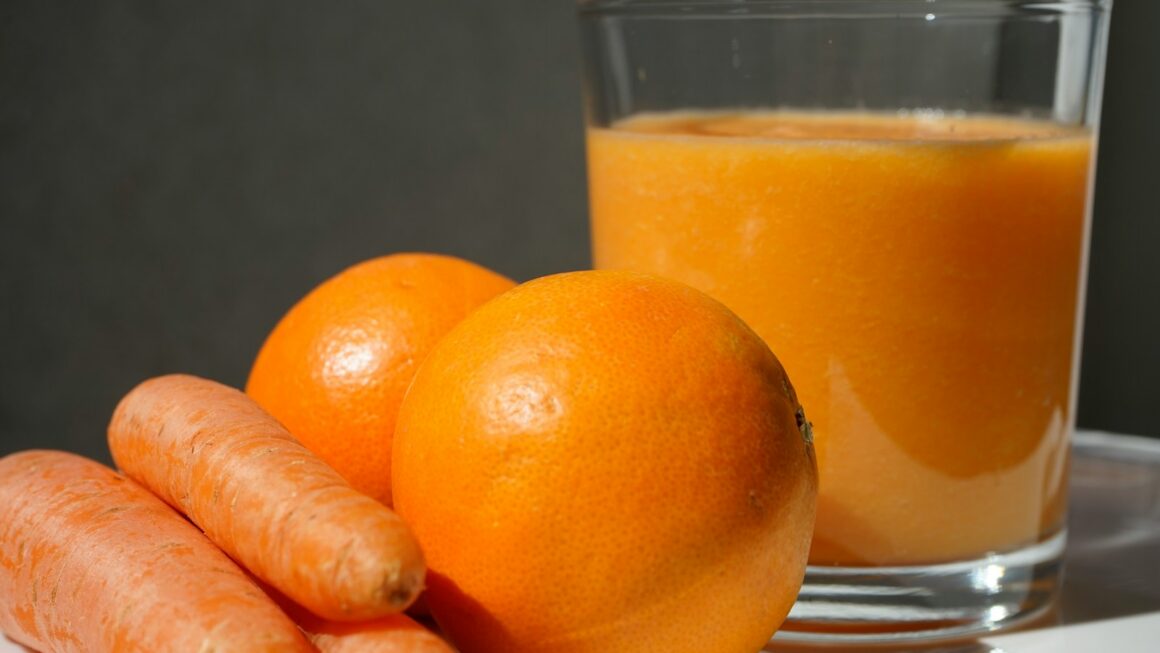Antioxidants are compounds that play a vital role in protecting our cells from damage caused by free radicals.
Free radicals are unstable molecules that can cause oxidative stress in the body, leading to various health issues such as inflammation, heart disease, and premature aging. Antioxidants work by neutralizing these free radicals, thereby reducing their harmful effects and promoting cellular health.
Through a process called electron donation, antioxidants stabilize free radicals by giving them the electrons they need to become stable molecules. This helps to prevent oxidative stress and the damage it can cause to our cells and DNA. By incorporating a variety of antioxidants into our diet from sources such as fruits, vegetables, nuts, and seeds, we can help support our body’s natural defense mechanisms against oxidative stress and age-related diseases.
Understanding Free Radicals and Oxidative Stress
Free radicals are unstable atoms that can cause damage to cells in the body. They are produced through normal bodily functions such as metabolism, but their levels can increase due to factors like pollution, smoking, and poor diet. Free radicals seek to stabilize themselves by stealing electrons from other molecules, leading to a chain reaction that can harm cells and contribute to aging and disease.
Oxidative stress occurs when there is an imbalance between the production of free radicals and the body’s ability to neutralize them with antioxidants. This imbalance can result in cellular damage and inflammation, which are linked to various health problems including heart disease, cancer, and neurodegenerative disorders. Understanding the role of free radicals and oxidative stress is crucial in exploring the potential benefits of antioxidants in maintaining health and preventing age-related conditions.
How Antioxidants Combat Aging at a Cellular Level
Antioxidants play a crucial role in combating aging at a cellular level by neutralizing free radicals that can cause damage to cells and tissues. Free radicals are unstable molecules that are generated by various internal and external factors, such as pollution, UV radiation, and even the natural process of metabolism. When left unchecked, these free radicals can lead to oxidative stress, which is associated with aging and age-related diseases.
By scavenging these free radicals, antioxidants help to protect cells from oxidative damage and maintain their proper functioning. This process helps to slow down the aging process, reduce inflammation, and support overall cellular health. Through their ability to combat oxidative stress, antioxidants act as powerful defenders against premature aging and contribute to promoting longevity and well-being on a cellular level.
The Role of Antioxidants in Preventing Age-Related Diseases
As we age, our bodies become more susceptible to oxidative stress, a process characterized by an imbalance between free radicals and antioxidants. Free radicals, in excess, can damage cells and contribute to the development of age-related diseases such as heart disease, cancer, and neurodegenerative disorders like Alzheimer’s. Antioxidants play a crucial role in combating these harmful effects by neutralizing free radicals and reducing oxidative damage to our cells and tissues.
Research has shown that a diet rich in antioxidants, such as fruits, vegetables, nuts, and whole grains, can help prevent age-related diseases by reducing inflammation and supporting overall cellular health. Additionally, certain antioxidants like vitamin C, vitamin E, and beta-carotene have been linked to a lower risk of chronic conditions associated with aging. By incorporating a variety of antioxidant-rich foods into your daily meals, you can provide your body with the necessary tools to combat oxidative stress and promote longevity.
Key Sources of Antioxidants in a Healthy Diet
Berries are renowned for their antioxidant content. Blueberries, strawberries, raspberries, and blackberries are rich in compounds like flavonoids and vitamin C that help combat oxidative stress in the body. These vibrant fruits can easily be incorporated into your diet by adding them to yogurt, oatmeal, or simply enjoying them as a snack.
Leafy green vegetables such as spinach, kale, and Swiss chard are excellent sources of antioxidants like lutein, zeaxanthin, and vitamin E. These nutrients not only protect cells from damage caused by free radicals but also contribute to overall health and well-being. Including a variety of leafy greens in your meals can provide a substantial boost to your antioxidant intake.

The Importance of Antioxidant Supplements for Aging Adults
Antioxidant supplements play a crucial role in supporting the overall health and well-being of aging adults. As we age, our bodies naturally produce fewer antioxidants, making it essential to supplement our diet to maintain adequate levels. These supplements help to neutralize harmful free radicals, reduce oxidative stress, and protect against age-related diseases.
Research has shown that antioxidant supplements can help improve cellular function, slow down the aging process, and enhance immune function in older adults. By incorporating these supplements into their daily routine, aging adults can boost their body’s defense mechanisms and promote longevity. It is important for aging individuals to consult with healthcare professionals to determine the most suitable antioxidant supplements for their specific needs and to ensure they are taking the appropriate dosage for optimal health benefits.
Potential Side Effects of Antioxidant Overuse
Excessive intake of antioxidants through supplements may lead to potential side effects in some individuals. While antioxidants are generally considered beneficial for overall health, an imbalance caused by overconsumption can disrupt the delicate balance of oxidative stress in the body. This disruption may interfere with important signaling pathways and processes that rely on oxidative molecules for proper functioning.
Moreover, some studies suggest that an excessive amount of antioxidants may interfere with the body’s innate defense mechanisms against free radicals. By neutralizing all free radicals, antioxidants may inadvertently prevent the body from triggering its own antioxidant defense system, which can lead to a weakened ability to combat oxidative stress naturally. It is important for individuals to be mindful of their antioxidant intake and to consult with a healthcare professional before starting any new supplementation regimen to avoid potential side effects associated with overuse.
How Lifestyle Choices Impact Antioxidant Levels in the Body
Our daily lifestyle choices play a crucial role in determining the levels of antioxidants present in our bodies. Regular exercise has been shown to increase the production of endogenous antioxidants, helping to combat oxidative stress and prevent cellular damage. In contrast, a sedentary lifestyle can lead to a decrease in antioxidant levels, leaving cells more vulnerable to the harmful effects of free radicals.
Additionally, diet plays a significant role in the availability of antioxidants in the body. Consuming a variety of fruits, vegetables, whole grains, and nuts provides essential nutrients that act as antioxidants, helping to neutralize free radicals and reduce oxidative stress. On the other hand, diets high in processed foods, saturated fats, and added sugars can deplete antioxidant levels, contributing to accelerated aging and increased risk of age-related diseases.
The Latest Research on Antioxidants and Aging
Recent studies have shed light on the powerful impact of antioxidants on the aging process. Researchers have found that antioxidants play a crucial role in combating the harmful effects of free radicals, which are unstable molecules that can damage cells and contribute to aging. By neutralizing free radicals, antioxidants help protect cells from oxidative stress and reduce the risk of age-related conditions.
In addition to their protective effects, antioxidants have been shown to support healthy cellular function and promote longevity. Studies have demonstrated that diets rich in antioxidants can slow down the aging process at a cellular level, leading to improved overall health and well-being. This research highlights the importance of incorporating antioxidant-rich foods and supplements into our daily routines to harness their anti-aging benefits.
Tips for Incorporating Antioxidants into Your Daily Routine
Incorporating antioxidants into your daily routine is essential for maintaining overall health and combating the effects of aging. Start by including a variety of colorful fruits and vegetables in your meals, as these are rich in antioxidants such as vitamin C, vitamin E, and beta-carotene. Consider adding berries, leafy greens, nuts, and seeds to your diet to boost your antioxidant intake.
Another way to incorporate antioxidants into your daily routine is by choosing whole grains over refined grains. Whole grains contain antioxidants like selenium and flavonoids that can help protect cells from damage. Additionally, opting for green tea or herbal teas instead of sugary beverages can provide you with a natural source of antioxidants to support your body’s defenses against oxidative stress.



